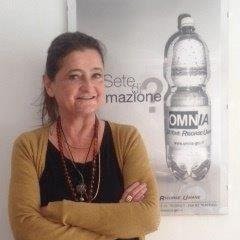THE MANAGEMENT OF WORKING GROUPS
At the end of the course the participants will be able to: recognize the ingredients that make a group a work group, act their leadership with more awareness, plan and manage the work of a group more effectively, use the techniques for managing a group

Course professor:
Paola Viano
Objectives
At the end of the course participants will be able to:
- Recognize the ingredients that make a group a workgroup
- Act your leadership with more awareness
- Design and manage the work of a group more effectively
- Use techniques for managing a group
Recipients
The seminar is aimed at all those who, in various capacities, have the responsibility of coordinating and managing workgroups. A number of participants: from a minimum of 2 to a maximum of 12.
Program
- What is a group
- The characteristics of a group
- The different types of groups in relation to time and space
- How a group becomes a workgroup
- The spontaneous and friendly group
- The characteristics and conditions for a workgroup
- The conditions that allow group work
- The variables that structure a workgroup or the need for the goal
- The roles that people express within a group
- Communication functional to the work of the group
- Working in a group
- The relationship between subjectivities
- The possible balance between the individual and the group
- The needs that people try to satisfy within a workgroup
- The conditions that allow the individual to develop belonging to the group
- The role of the leader
- The leader as a guide and glue for the members of the group
- The monitoring of the Objectives and the management of relations
- Techniques for managing a workgroup
Didactic Methodology
The training will take place with an active methodology based on the involvement, enhancement, and capitalization of the participants’ experience. Individual and group exercises, analysis of film clips, analysis of real cases, role-playing, elaborations, and theoretical inputs will alternate.
Teaching materials
At the end of the course, all participants will be provided, in digital format, with all the material used in the classroom (slides, exercises, case histories, etc.).
Duration
3 half days in webinar mode individual and group, analysis of film clips, analysis of real cases, role-playing, elaborations, and theoretical inputs.
